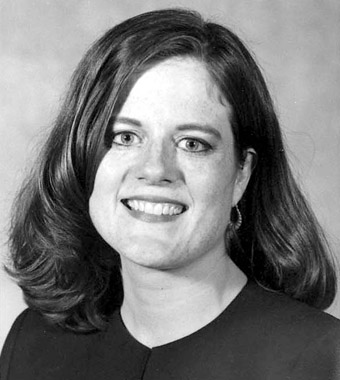Biology Professor An 'Ambassador' For Colleagues

Rene Massengale
by Judy Long
The 23 Baylor University faculty members who traveled to northern Iraq in December were not the only ones to contribute to the effort to assist Dohuk University and other Iraq universities in rebuilding their higher education system.
Many faculty contributed books and other educational resources and aided their colleagues' preparation for the two-day workshops that covered a variety of academic topics from physics to classics.
Dr. Rene Massengale said her colleagues in the biology department spent many hours helping her prepare and assemble materials to take to Iraq.
"The trip would not have been possible without the assistance and prayers of my colleagues. I felt as if I were an ambassador on their behalf," she said.
As Massengale prepared for sessions on the latest advances in treating infectious diseases and new teaching techniques in medicine, Dr. Ann Rushing and Dr. Tamara Adair helped Massengale assemble detailed resources in the areas of research, academics and curriculum development and compose a summary notebook of Baylor research and academics. They also assisted in acquiring educational materials from Howard Hughes Medical Institute, the National Institutes of Health and various textbook publishers. Staff member Stephanie Wuest, and graduate student Samir Moussa compiled information in research, academics, and infectious diseases and prepared more than 50 CD-ROMs that were distributed to the Iraqi universities.
Massengale's faculty colleagues also reached into their personal libraries to provide updated scientific information, such as Dr. Chris Kearney, who contributed some of his own texts and reference books, as well as CD-ROMs of research articles, and Dr. Ben Pierce, who donated copies of his new and well-received genetics textbook.
In addition to her colleagues' contributions, Massengale took DVDs of lecture series, CD-ROMs of various power point presentations, virtual laboratory software and copies of laboratory manuals written by Dr. Diane Hartman, Baylor's lab coordinator. Also, faculty provided numerous items from science vendors -- pens, pencils, note pads, science reference cards, information on open-access journals, calendars and periodical posters.
The department's efforts made it possible to deliver critically needed educational resources to four Iraqi universities.
"To see the universities receive these materials when we arrived was a moving experience. It was almost like Christmas morning. Of course I wished I had brought more," Massengale said.
All together, they assembled more than 150 pounds of materials.
"At the moment when the deans of the colleges received their supplies, I saw the value of combining my expertise with the idea of vocation to serve the needs of the international community," Massengale said. "We need to seek more opportunities such as this to make a difference in the world."